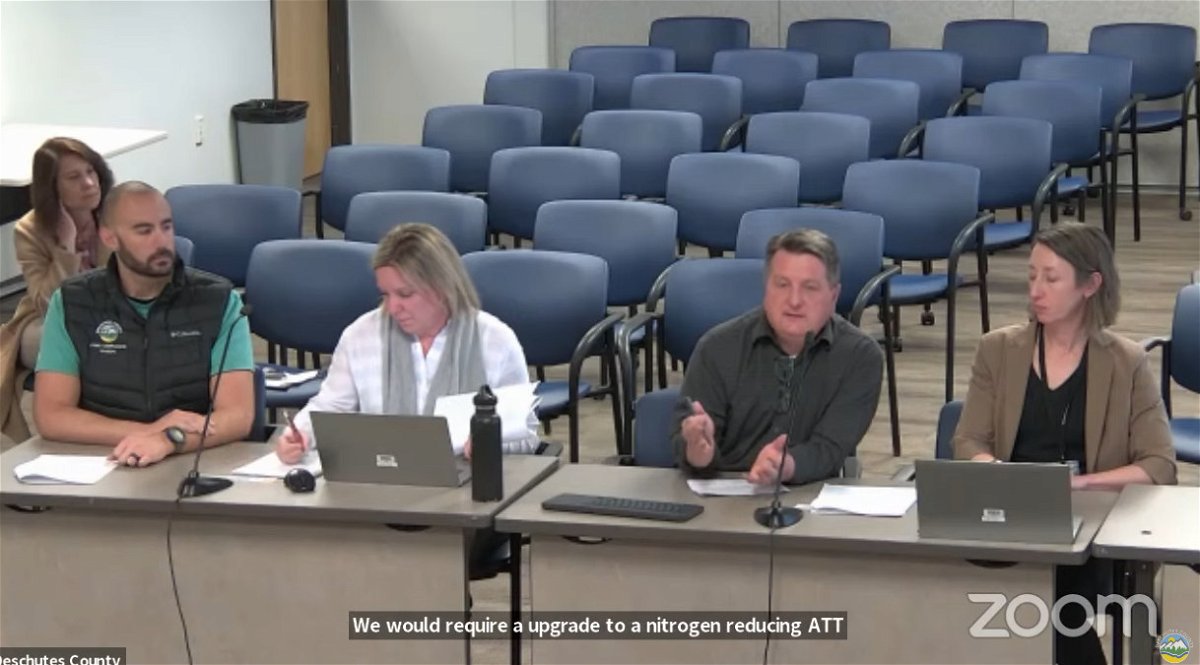Deschutes County to press ahead on new rules for RVs to become legal rural dwellings, ease code violation cloud

BEND, Ore. (KTVZ) – Deschutes County code enforcers already have their hands full with dozens of RVs and other illegal dwellings in rural areas. But a new state law’s chance to add badly needed housing and permit RVs as legal rural rentals - if they meet requirements - is still too good to pass up, whether the county goes first or not.
A month ago, commissioners dove into the devilish details and asked Community Development Department staff to return with more information on where things stand and how this allowance could help.
One significant aspect: a requirement to hook the RV up to the home’s wastewater disposal system, likely septic systems in rural areas.
“We’ve never evaluated RVs as a permanent use” previously, said Todd Cleveland, the county’s onside wastewater manager. While similar to setups in an RV park, the permanency could mean the need to add more tank capacity, and that like many septic-related issues could be a bigger hurdle in the south county, dealing for decades with the need to upgrade septic systems and stop nitrate contamination.
A related issue: laundry. Living in an RV, on a lot with a home, you’d need to wash your clothes regularly, and that also would have an impact. Two laundries on one lot "is a lot of wastewater flow,” Cleveland said, having dealt with many complaints at RV parks regarding improper connections and the line.
Commissioner Phil Chang noted “one of the biggest struggles” is that there already a lot of RVs used as dwellings around the county – likely unauthorized, except for medical hardships -- and setting achievable requirements could bring more into compliance, rather than struggle through code enforcement complaints.
“Putting a program in place doesn’t guarantee there still won’t be a whole lot of unauthorized RVs out there,” Chang said.
Senior Planner Tanya Saltzman said the county is dealing at present with 93 cases of unauthorized RV uses, that complaint-driven process from neighbors and the like.
One idea losing luster is one of requiring a “ramada” – sort of a sturdy carport – so that RVs staying permanently in snowier areas can deal with heavy snow loads and not face damage or collapse. Since no other situations require it, Chang said “it doesn’t make a lot of sense to me” to require them in this program.
Community Development Director Peter Gutowsky said they always want to do as commissioners direct, but also want them to be aware of the impacts adding new programs can bring for the staff who answer public questions – which don’t always lead to permits (and hence, revenue).
But he also noted they are addressing turnover issues from earlier this year, adding two permit techs and making an offer for another code enforcement specialist.
Commissioner Tony DeBone said while they aren’t yet ready to go to a public hearing with a firm proposal, he supports researching an American Rescue Plan Act (federal) investment in this housing option and more work to flesh things out.
While staff noted that the county could wait and let other counties go first this time, fleshing out the rules for RVs as rural dwellings, there also are differences in, say, snow load between an RV as a home in Tumalo vs. on the coast in, say, Tillamook. Chang noted that soil conditions are also pretty different.
Commissioner Patti Adair pointed out how the added housing option of allowing more rural ADUs (accessory dwelling units) hit issues, some one could not foresee.
“Who knew mortgage rates would hit 7 percent?” she asked. And then there’s a requirement to add septic capacity that can tack on $40,000 to the cost.
“It’s challenging out there,” she said.
But Adair added later, “I’d love to get people out of code (violations). I guess that would be the ultimate goal. People don’t need the extra stress. If we could help those people, I’d feel we did something right.”
